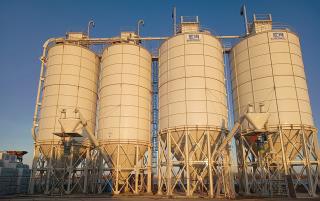The Middle East and African cement industry is undergoing fast growth fuelled by urbanisation, expanding populations and the need for better living conditions, leading to greater demand for more housing and infrastructure, etc. At the same time, many countries in these regions are undergoing industrialisation, developing industries that also need building materials. They are also experiencing a boom on commodities, despite the recent financial crisis, and a sustained demand for subsequent mining capital expenditure providing funds for GDP growth and requirement for more building materials.
Other significant trends are customer needs to decrease capex projects. The cement industry is highly capitalistic and access to funds is a challenge, particularly after the recent financial crisis leading to debt reduction policies for many producers.
Moreover, many cement manufacturers are focusing on more efficient and innovative solutions to reduce operating expenditure and on sustainable and environmentally-friendly solutions for their plants.
The main challenges for Polysius in these regions are in reducing capex, providing new technological solutions to improve efficiency and reduce environmental impacts. Furthermore, the company faces increased pressure on prices from low cost suppliers and is required to keep the outstanding quality and reliability of its technology and services that have earned Polysius its leading reputation.
With a wealth of experience of more than 150 years, Polysius has evolved from a machinery supplier into a global engineering company, providing comprehensive skills to build turnkey cement plants and customer services. The turnkey specialist supplied the equipment for its first complete African cement plant as early as 1907 in Egypt.

Upgrading a Baltic flagship
VARA Holding recently upgraded its flagship import terminal in Riga port, Latvia. Daniele Sciuto ...